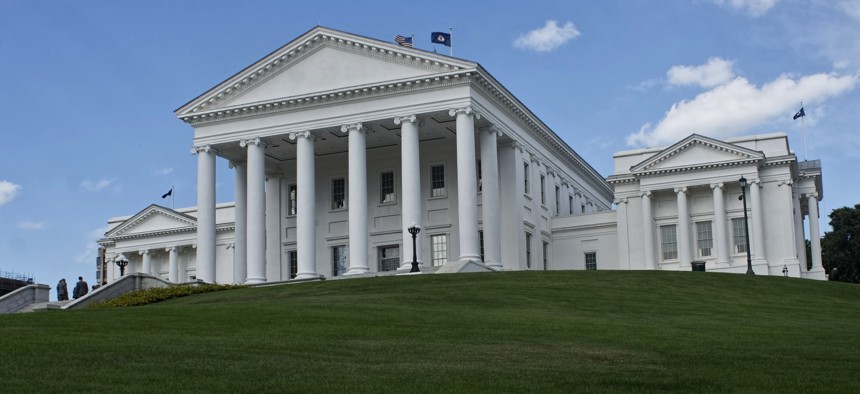Virginia Lawmakers Examining a Big Public Records Loophole

The Virginia State Capitol in Richmond mj007 / Shutterstock.com

Connecting state and local government leaders
The commonwealth’s “working papers” exemption has seen numerous FOIA request denials and is the only one covering state university presidents.
Facing several bills to make changes to Virginia’s Freedom of Information Act last session, state lawmakers referred the legislation to an advisory council, which sent them to a subcommittee, which tabled discussion until July.
The Freedom of Information Advisory Council subcommittee has a three-year mission to review public records exemptions—the broadest of which allows government executives and legislators to withhold “working papers and correspondence” prepared for “personal or deliberative use.”
Called a “working papers” exemption, it’s the only state public records provision that covers university presidents and has become a catchall for many finished documents, when other states have laws releasing drafts once decisions are made, according to the Daily Press.
“The remedy is not to change the law,” committee member Timothy Oksman told the Newport News newspaper. “It’s to take that person to court.”
Oskman and his colleagues heard last week from the University of Virginia and Virginia Tech, which lobbied to preserve the exemption so they can discuss things like economic development deals in secret—often at the request of corporations.
The committee also looked at another exemption protecting written advice from attorneys to clients who are government officials, but the Daily Press reported none of the members sought a change in state law and only one called for better education and enforcement.
When a Fairfax County judge ordered Virginia’s Department of Corrections to release information on capital punishment materials and procedures to a lawmaker under FOIA, the department appealed to the state Supreme Court. A bill to release the information barely failed in the Virginia legislature.
Arguments were recently heard in that case with state attorneys arguing that there were security risks, particularly for pharmaceutical companies that might be targeted for protests by opponents of capital punishment.
“Accountability is critically important in a state function that can’t be reversed,” The Free-Lance Star editorial board recently wrote in support of making the information public. “And accountability begins with transparency.”

NEXT STORY: Making Kansas City Fertile Ground for the Internet of Things





